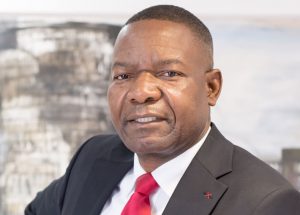Hwange Communities raise concern over Deka river pollution

COMMUNITIES in Hwange who, for years, have been affected by Deka River pollution, have raised concern over coal mining companies’ failure to address the problem and reneging on their promise to provide safe water.
This was revealed recently by a taskforce comprising of Hwange district administrator, Hwange Rural District Council, communities from affected areas and other interested stakeholders at a feedback meeting organised by Basilwizi Trust.
The taskforce, which is looking into the pollution problem, was set up in March this year.
Villagers said the mining firms had reneged on honouring their pledge to drill boreholes leading to loss of livestock due to the acidity of the water.
The mining firms have been blamed for the death of hundreds of fish in December last year.
Hwange Colliery Company, Zimbabwe Power Company, Chilota and Sandledge Mining (formerly Coalbrick Mine), who are discharging effluent into the river, were summoned by the taskforce and pledged to, among other things, investigate the source of pollution and drill three boreholes each in the affected communities.
Preliminary studies conducted by the Environmental Management Agency (EMA) revealed that acid mine drainage (AMD) from the mining activities in the area was affecting aquatic life. Other pollutants from mining activities such as coal dust or fines were cited as contributors.
AMD refers to the outflow of acidic water from a mining site. In most cases, this acid comes primarily from oxidation of iron sulfide, which is often found in conjunction with valuable metals.
“We are disappointed at the pace these companies are taking in addressing access to water issues, which they pledged to do sometime in March after effluent was discharged into the Deka River, which is an important water source for us and our livestock. Fish continue to die and our livestock is also being affected by this pollution. The water is not safe to drink, bath or wash as it leaves skin itching, which has forced us to travel distances of between 3km and 5km to access drinking water,” Mashala village head Patrick Nyoni said.
Nyoni said they need to find lasting solutions to stop pollution. He said environment authorities took samples of the water, which was sometimes yellow or dark green in colour, but have not released the results.
Rosemary Shoko from Chachachunda said women were the most affected, as they were in constant contact with the water.
“This a crisis that needs urgent attention, and the delay that is taking place has become a great worry to us. We as women are the most affected as we have to walk for several kilometres to access clean water, and since our primary food source has been polluted, it is us who have to look for alternative relish. We are very worried about our health, considering the tenderness of women skin which when exposed to the contaminated water from the river becomes itchy. We have continued to say these companies have been gambling with our lives, polluting the water without restraint. What are we going to eat when our animals are also dying from this calamity?” she said.
Communities in Chachachunda, Zvabo, Mukuyu, Mashala and Mwemba, home to a population of about 1 200, blamed the mining companies’ poor rehabilitation systems for the catastrophe.
Acting Hwange district administrator, Simbarashe Kayela said the companies had committed to start drilling boreholes in December.
“Your concerns are noted, and I want to assure you that the DA’s office is doing everything in its power to ensure that boreholes are drilled as per pledge. So far, I can confirm that Hwange Colliery has been rehabilitating some of the boreholes that had broken down long back as part of its short-term plan to resolving the problem. I’m happy that they have put tentative timelines to start drilling, which is a positive development, though the process has been slow. It’s not going to be a one day activity, but it’s an ongoing process of engagement,” he said.
Kayela said ZPC would take advantage of a second pipeline which is going to be constructed under the Stage 7 and 8 expansion schemes of the power station to connect taps to the communities.
He said Sandledge had asked for drilling quotations and would commence work before monthend, while Chilota has not been mining for sometime and are yet to advise.
Meanwhile, HRDC said it was engaging mining companies with a view to finding a permanent solution that would eliminate pollution.
EMA revealed that similar patterns were experienced in 1996 and 2007. The agency said there was need for long term commitment such as the installation of a treatment plant to stop pollution.
“We have engaged companies that are dumping effluent into the river to do so after treating it. There has been compliance in that regard. However, it has also been noted that AMD, which finds its way into the river, is the main culprit causing the deaths of fish. There is need for concerted efforts in establishing effective treatment mechanisms such as installing a treatment plant downstream,” EMA Matabeleland North provincial manager Chipo Mpofu-Zuze said.
Though the Environment Management Act has a provision for the setting up of an Environment Fund, which is meant to assist in cleaning up, rehabilitating degraded and polluted environments, nothing has been done to utilise it in addressing the Hwange issue. Setting up of the treatment plant reportedly costs around $30 million, a figure most companies cannot afford.
Source: Newsday


